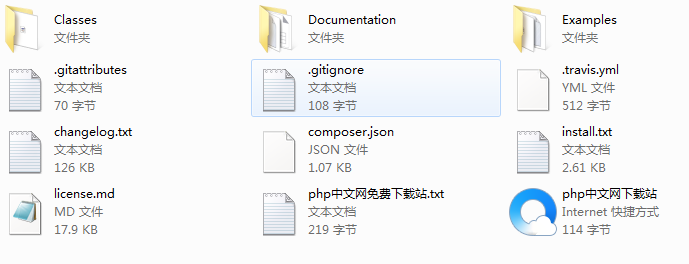current location: Home > download site > Library download > Other libraries > PHP library for string manipulation with multibyte support
PHP library for string manipulation with multibyte support
| Classify: Library download / Other libraries | Release time: 2017-12-13 | visits: 1383 |
| Download: 40 |
Latest Downloads
Fantasy Aquarium
Girls Frontline
Wings of Stars
Little Flower Fairy Fairy Paradise
Restaurant Cute Story
Shanhe Travel Exploration
Love and Producer
The most powerful brain 3
Odd Dust: Damila
Young Journey to the West 2
24 HoursReading Leaderboard
- 1 How to Prevent Labels from Being Cut Off in Matplotlib Plots?
- 2 How to Sort an Embedded Array Field in MongoDB?
- 3 Movavi Video Editor Cracked
- 4 dynamics.exe - What is dynamics.exe?
- 5 How to Wait for Asynchronous Callback Functions Simultaneously?
- 6 What is the Purpose of `` in Backbone.js?
- 7 How to Achieve the Functionality of Postgresql's DISTINCT ON in MySQL?
- 8 How to Escape the Colon Character in JPA Queries for MySQL User Variables?
- 9 How to Retrieve the Initial Row of Each Group in a Pandas DataFrame?
- 10 How to Fix the "EPERM: operation not permitted" Error When Setting npm Prefix on Windows?
- 11 dwrcc.exe - What is dwrcc.exe?
- 12 How to Accurately Determine Perfect Squares Without Floating-Point Errors?
- 13 Why are `navigator`, `window`, and `document` undefined in my Nuxt application?
- 14 dxinput3.dll - What is dxinput3.dll?
- 15 Why Does Android Studio Throw the "getSlotFromBufferLocked: unknown buffer" Error During Registration on Marshmallow?
Latest Tutorials
-
- Go language practical GraphQL
- 2002 2024-04-19
-
- 550W fan master learns JavaScript from scratch step by step
- 3420 2024-04-18
-
- Getting Started with MySQL (Teacher mosh)
- 1804 2024-04-07
-
- Mock.js | Axios.js | Json | Ajax--Ten days of quality class
- 2617 2024-03-29
<?php
namespace Stringy;
if (!function_exists('Stringy\create')) {
/**
* Creates a Stringy object and returns it on success.
*
* @param mixed $str Value to modify, after being cast to string
* @param string $encoding The character encoding
* @return Stringy A Stringy object
* @throws \InvalidArgumentException if an array or object without a
* __toString method is passed as the first argument
*/
function create($str, $encoding = null)
{
return new Stringy($str, $encoding);
}
}Strings are mainly used for programming. See the text for concept explanations, function explanations, and usage details. Here is an additional point: strings are similar to character arrays in storage, so each of its individual elements can be extracted. For example, s="abcdefghij", then s[1]="a", s[10]="j", and the zero position of the string is its length, such as s[0]=10 (※ The above function Ansistring No.), which can provide us with a lot of convenience. For example, each bit can be converted into a number and stored in an array during high-precision operations.
A string or string (String) is a string of characters composed of numbers, letters, and underscores. Generally recorded as s=“a1a2···an” (n>=0). It is a data type that represents text in programming languages. In programming, a string is a continuous sequence of symbols or values, such as a symbol string (a string of characters) or a binary digit string (a string of binary digits).
Usually the entire string is used as the operation object, such as: finding a substring in the string, obtaining a substring, inserting a substring at a certain position in the string, deleting a substring, etc. The necessary and sufficient conditions for two strings to be equal are: the lengths are equal, and the characters at each corresponding position are equal. Assume that p and q are two strings. The operation of finding the position where q first appears in p is called pattern matching. The two most basic storage methods of strings are sequential storage and linked storage.










![[Web front-end] Node.js quick start](https://img.php.cn/upload/course/000/000/067/662b5d34ba7c0227.png)
